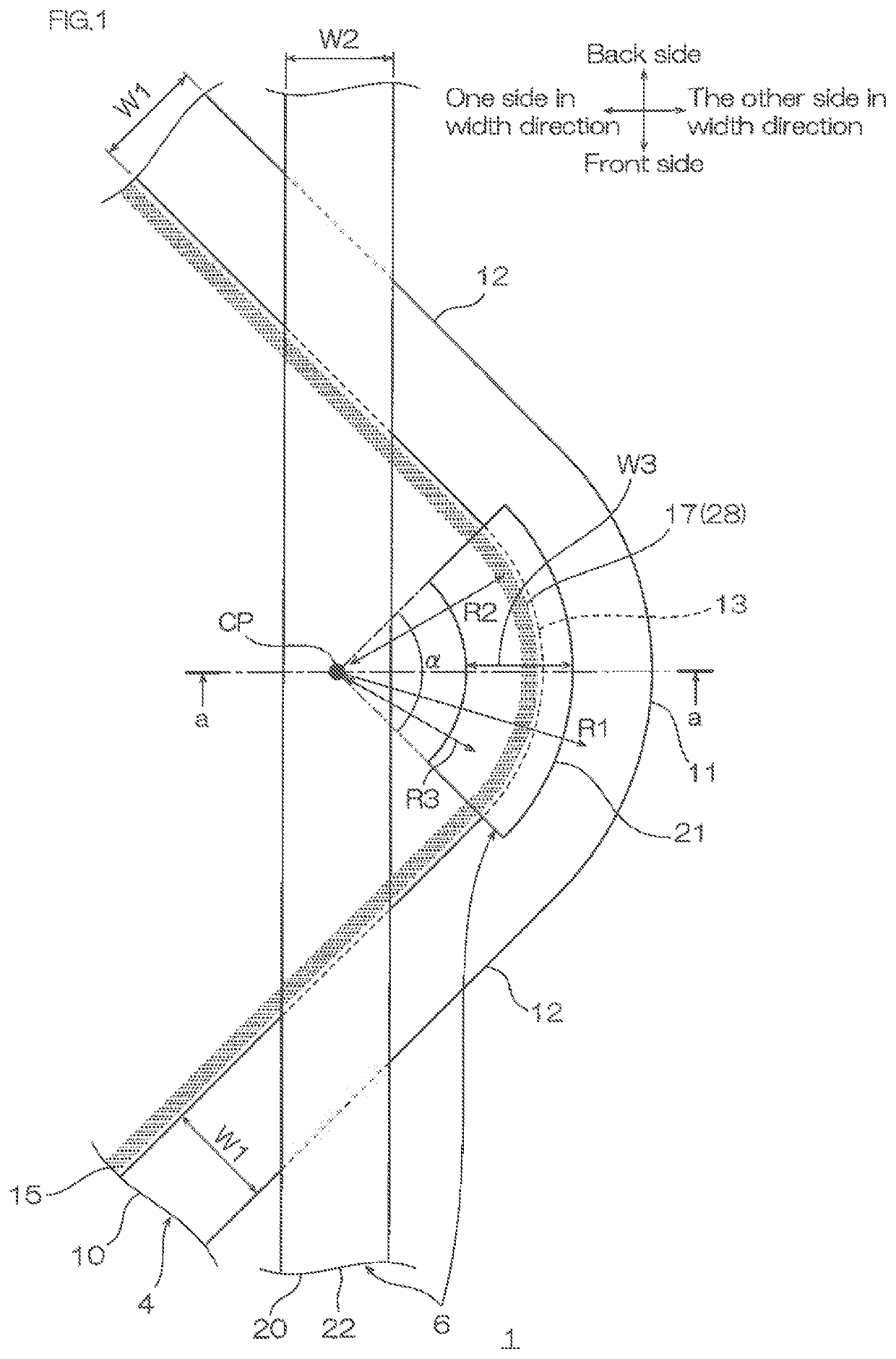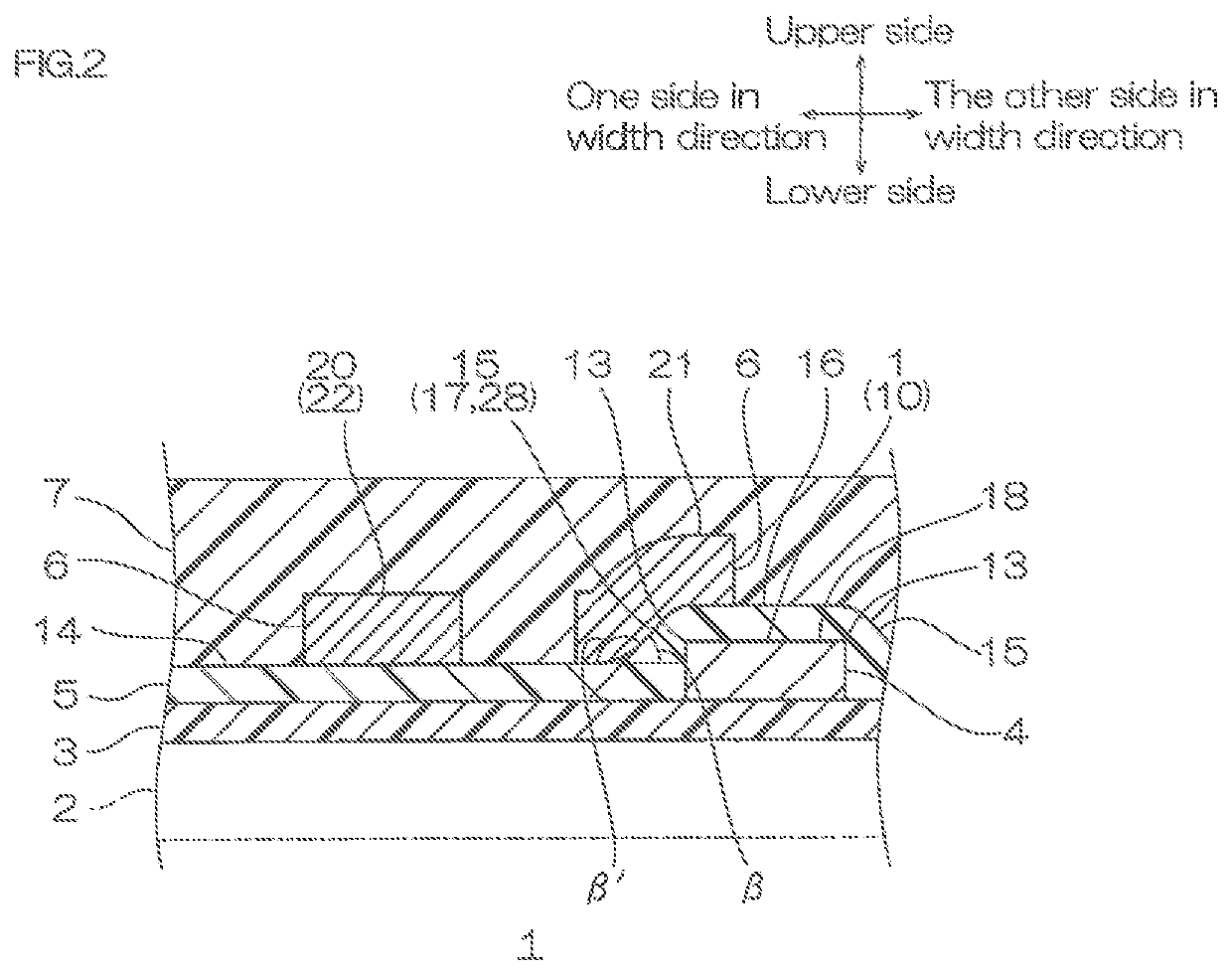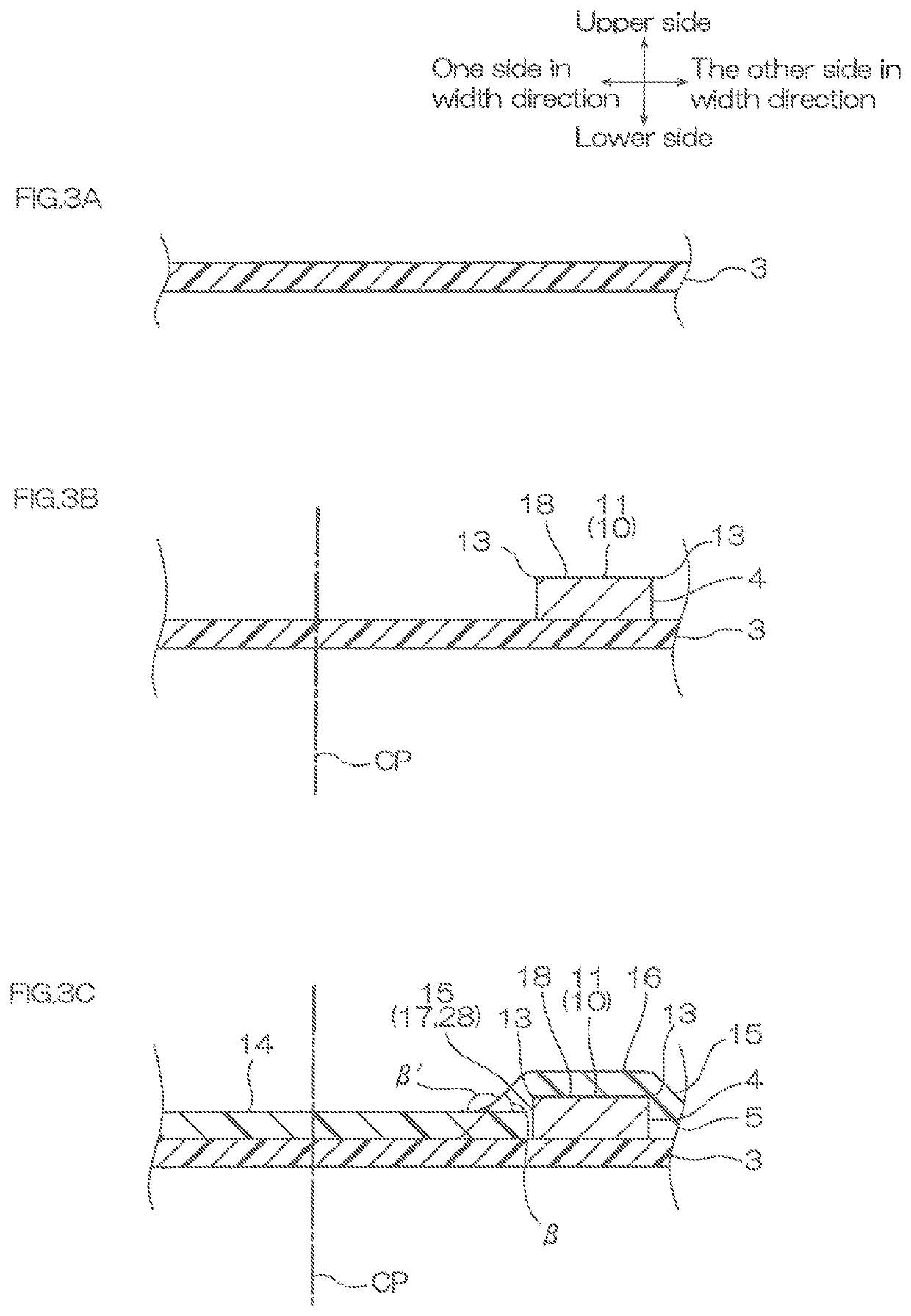Wired circuit board and producing method thereof
a wired circuit board and wire technology, applied in the direction of circuit bendability/stretchability, conductive material removal by irradiation, head carrier alignment, etc., can solve the problem of inadequate wiring pattern formation, which cannot be prevented, and achieve excellent connection reliability, high degree of freedom, and improved wire reliability
- Summary
- Abstract
- Description
- Claims
- Application Information
AI Technical Summary
Benefits of technology
Problems solved by technology
Method used
Image
Examples
first embodiment
4. Modified Example of First Embodiment
[0234]In the first embodiment, the bent portion 17 as an example of the bent portion is used. Alternatively, for example, the bent portion is not limited to the bent portion 17.
[0235]Although not shown, a curved portion that is curved at a predetermined angle in one direction in a plurality of times or a single time (or a curving portion that curves at a predetermined angle in one direction) can be also used. In such a case, the curved portion (curving portion) includes a part of vertexes and at least two sides continued therefrom of a polygon. The above-described angle, is for example, more than 0 degree, preferably 30 degrees or more, and for example, 90 degrees or less, preferably 60 degrees or less.
[0236]As shown in FIG. 1, the shape of the dummy wire 21 is a generally arc shape when viewed from the top, and the shape thereof is not limited to the above-described shape as long as the dummy wire 21 is overlapped with the second portion 28 in...
second embodiment
[0238]In the second embodiment, for the members and steps that are the same as the first embodiment, the same reference numerals are given and detailed descriptions thereof are omitted.
[0239]In the first embodiment, the negative type photoresist 25 is used, and the additive method is used to form the second conductive pattern 6.
[0240]However, in the second embodiment, the positive type photoresist 25 is used, and the subtractive method is used to form the second conductive pattern 6.
[0241]4-1. Method for Producing a Wired Circuit Board
[0242]The production method of the wired circuit board 1 of the second embodiment includes a step (i) (ref: FIG. 3A), in which the insulating base layer 3 of the first embodiment is prepared, a step (ii) (ref: FIG. 3B), in which the first conductive pattern 4 is provided, and a step (1) (ref: FIG. 3C), in which the intermediate insulating layer5 is provided.
[0243]The production method of the wired circuit board 1 of the second embodiment further includ...
third embodiment
3. Modified Example of Third Embodiment
[0291]The wired circuit board 1 of the third embodiment is produced using the negative type photoresist 25. In the modified example, though not shown, the wired circuit board 1 of the third embodiment can be also produced using the positive type photoresist 25.
[0292]As shown in FIG. 11, the shape of the dummy portion 35 is a generally triangular shape when viewed from the top, and the shape thereof is not limited to the above-described shape as long as the dummy portion 35 is overlapped with the second portion 28 in the thickness direction.
[0293]The dummy portion 35 is overlapped with only the second portion 28 corresponding to the first arc portion 11, and furthermore, can be also overlapped with the second portion 28 corresponding to the first linear portion 12.
Fourth Embodiment
[0294]In the fourth embodiment, for the members and steps that are the same as the first to third embodiments, the same reference numerals are given and detailed descr...
PUM
| Property | Measurement | Unit |
|---|---|---|
| angle | aaaaa | aaaaa |
| angle | aaaaa | aaaaa |
| width W1 | aaaaa | aaaaa |
Abstract
Description
Claims
Application Information
 Login to View More
Login to View More - R&D
- Intellectual Property
- Life Sciences
- Materials
- Tech Scout
- Unparalleled Data Quality
- Higher Quality Content
- 60% Fewer Hallucinations
Browse by: Latest US Patents, China's latest patents, Technical Efficacy Thesaurus, Application Domain, Technology Topic, Popular Technical Reports.
© 2025 PatSnap. All rights reserved.Legal|Privacy policy|Modern Slavery Act Transparency Statement|Sitemap|About US| Contact US: help@patsnap.com



